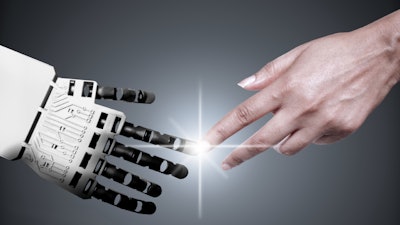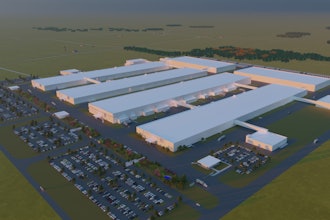
There has been quite the amount of chatter within the Supply Chain and Quality Control spaces about the implementation of Artificial Intelligence (AI) to support and streamline manufacturing processes. However, in working to drive efficiency, transparency and compliance, the argument for the indispensable human touch of on-the-ground inspectors still weighs in strong.
While AI has transformed the way we analyze and predict supply chain risks, human eyes and expertise are crucial to understanding what's happening in the factories, inspecting goods and suppliers, and reporting defects and non-conformities. Understanding the complexities of supply chain management and addressing both the growth and evolution of AI and the need for human eyes is where companies will either advance or fall behind.
In particular, AI technology is focused on improving:
- Quality Control. The analysis of product quality based on various factors, and working to ensure only goods which meet strict standards proceed down the supply chain. This reduces defects and rejections.
- Risk Management. To monitor and assess complex internal and external risks based on multiple factors, from factories' performance and audit results, to geopolitical factors, strikes, pandemics, climate disruption, and more.
- Data Visibility. Enhancing supplier mapping and product tracing at every stage of the supply chain, which helps identify bottlenecks and inefficiencies, and prevents unauthorized subcontracting.
- Predictive Analytics. Crunching vast and established datasets to allow more predictive and preventative analysis. Implementing AI algorithms could allow businesses to optimize inventory levels, reduce storage costs and minimizing stockouts or overstock. Additionally, route optimization helps better understand real-time factors that may delay shipping, such as traffic, weather and road conditions.
While AI has proven valuable for data analysis, prediction and automation, it cannot replace the human element entirely. The global and ever-changing nature of the supply chain varies by state, country, industry, culture and more. Quick changes, physical product issues, brand expectations, and person-to-person needs demand oversight. For that reason, AI must be supplemented with on-the-ground human expertise, including:
- Cultural and Regional Expertise. Auditors and inspectors possess an intimate understanding of the local culture, language and regulations, which is critical when navigating complex supply chains spanning multiple countries.
- Supplier Relationships. No one wants to talk to any type of automated service, right? Building and maintaining relationships with suppliers is a delicate art, which requires human interaction. QC and sourcing back offices can negotiate and collaborate with suppliers to resolve issues and ensure compliance, even if AI discovers the problem.
- Unforeseen Challenges. Supply chains can face unexpected challenges, from natural disasters to labor strikes. Teams on the ground are better equipped to adapt to these challenges in real time, making critical decisions to keep the supply chain running.
- Brand Protection. While AI may be able to detect a slight issue with a product, many brands hold their quality and ethical standards at a higher level. QC teams teaming up with AI can better safeguard the brand’s reputation with more effective compliance management.
Brands and suppliers who develop a comprehensive strategy, implementing AI with already established, trusted inspectors, new partners and those with previous issues, will have a tremendous leg-up when working to mitigate risk for quality, safety and efficiency on the line. Using AI to prioritize inspection sites, based on risks and historical data, and flag new issues to investigate will help inspectors focus their efforts.
When it comes to developing a seamless supply chain in any industry, AI and on-the-ground inspectors are not adversaries, but allies. AI empowers QC, supply chain teams, inspectors and vice versa, through its powerful symbiotic relationship, which helps ensure safety compliance and brand integrity.






















